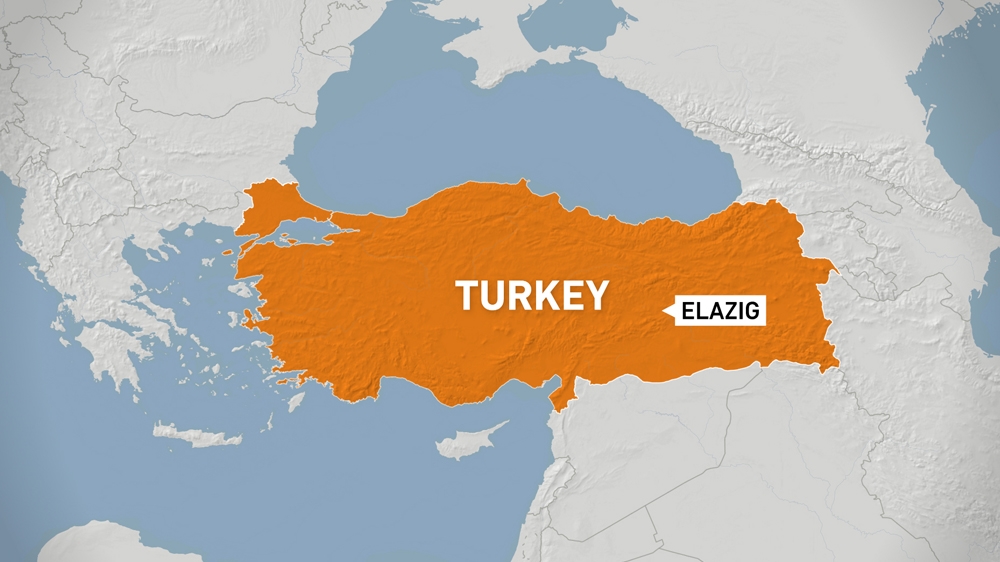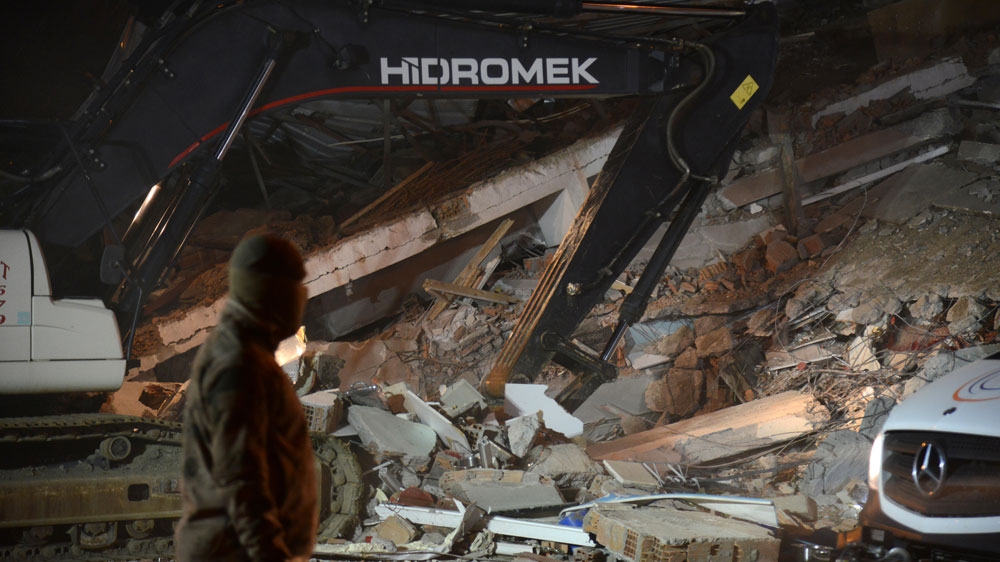Search and rescue efforts are under way after a deadly earthquake struck eastern Turkey, killing 29 people and injuring more than 1,100 others.
Speaking at a televised news conference, Interior Minister Suleyman Soylu said earlier in the day that 18 people were killed in Elazig province, where Friday night's quake was centered, and four in neighboring Malatya.
The national disaster agency later updated the total with seven more casualties.
The magnitude 6.8 quake, that struck on Friday evening, had its epicentre in the small lakeside town of Sivrice in Elazig province and was felt in neighbouring countries. Elazig is some 750km (465 miles) east of the capital, Ankara.
At least 40 people have been rescued from collapsed buildings. Health Minister Fahrettin Koca said around 1,103 people were injured, with 34 of them in intensive care but not in critical condition.
Turkish President Recep Tayyip Erdogan and leading members of his cabinet arrived in Elazig on Saturday afternoon.
The President also attended a funeral for a woman and her son killed in the quake, which he described as a "test" for Turkey.
"We are doing everything we can as the state and nation, and we will continue to do so. Our efforts at all rescue sites will continue," Erdogan said at the funeral.
The quake struck at 8:55pm local time (17:55 GMT), at a depth of 6.7km (4.1 miles), the Disaster and Emergency Management Presidency, or AFAD, said. It was followed by several aftershocks, the strongest with magnitude 5.4, the disaster agency said.
Some 30 buildings collapsed in the two provinces, according to Murat Kurum, the environment minister.
Hundreds of residents were left homeless. AFAD said 28 rescue teams were deployed and unmanned drones were used to survey damaged neighbourhoods and coordinate rescue efforts.
“Our biggest hope is that the death toll does not rise,” Parliament Speaker Mustafa Sentop said.
People in Elazig, whose homes were damaged or were too afraid to go indoors, were being moved to student accomodation or sports centre amid freezing conditions.
"It was very scary, furniture fell on top of us. We rushed outside," 47-year-old Melahat Can, who lives in the provincial capital of Elazig, told AFP news agency.
Eray Ernek described how he was watching television when the quake hit. "I was on the sofa and then fell on the floor. My sleeping father was woken up. After we found a way out, we broke the door and got out. We saw other houses had collapsed."
AFAD warned residents not to return to damaged buildings because of the danger of further aftershocks. It said beds, blankets and tents were being sent to the area where some people sheltered in sports gymnasiums.
Al Jazeera's Sinem Koseoglu, reporting from Elazig, said people affected by the quake spent the night either in the cars or in freezing temperatures outside.
"It is difficult to say exactly how many buildings have been damaged. People are now waiting to see their loved one being pulled out of the rubble."
Elazig Governor Cetin Oktay Kaldirim told NTV television that a fire broke out in a building in Sivrice but was quickly brought under control.
Turkey sits on top of two major faultlines and earthquakes are frequent. Two strong earthquakes struck northwest Turkey in 1999, killing around 18,000 people.
A magnitude 6.0 earthquake killed 51 people in Elazig in 2010.















0 Comments